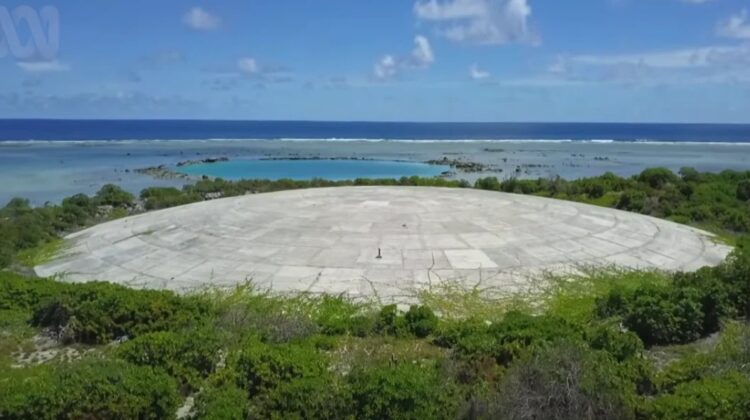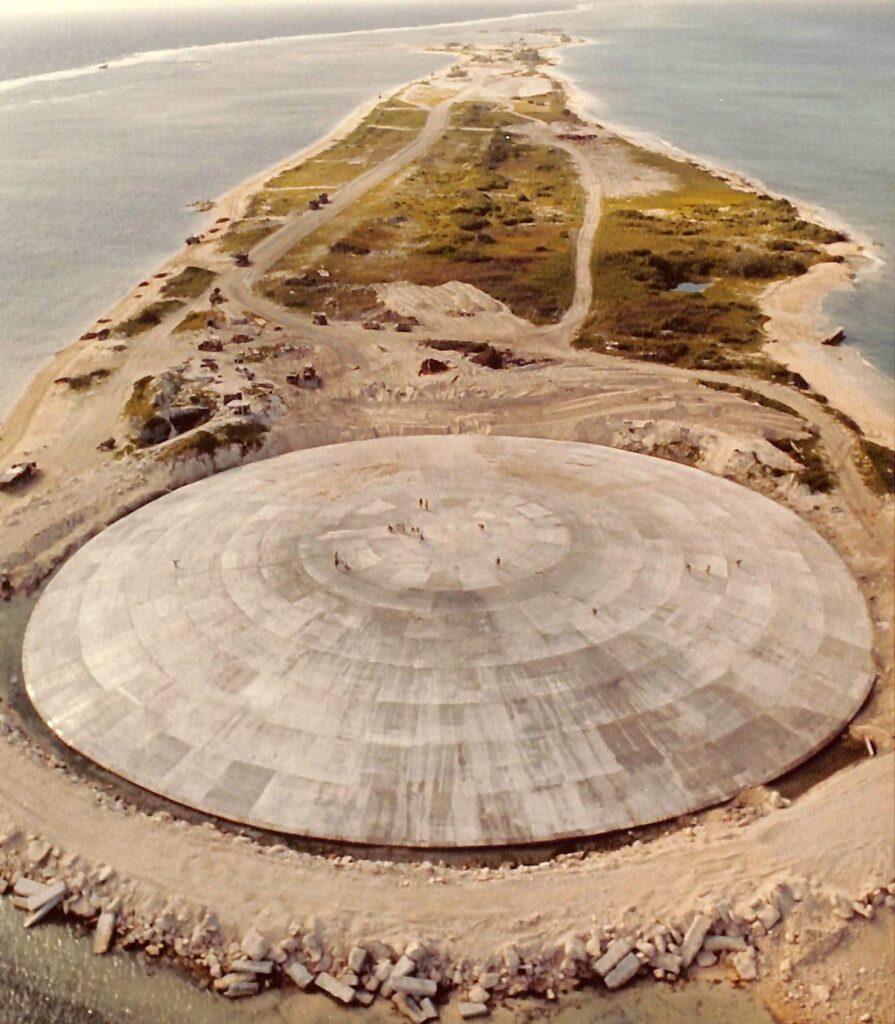
The Runit Dome, also known as the “nuclear coffin,” is a concrete sarcophagus located on Runit Island in the Marshall Islands. It contains 73,000 cubic meters of radioactive debris from 68 nuclear detonations and biological warfare remains that were left behind by the United States government between 1946 and 1958. The Runit Dome was constructed in 1980 as a means of containing the hazardous material and protecting the local population from further exposure.
However, recent reports have indicated that the Runit Dome is leaking, posing a significant risk to the environment and local communities. The Pacific Ocean is being polluted with radioactive waste from the dome, which has sparked concern from the global community.
Despite these concerns, marine radioactivity expert Ken Buesseler from the Woods Hole Oceanographic Institution (WHOI) states that the leakage is not new information. “We’ve known for years that the dome is leaking,” he said. “When we were there doing fieldwork in 2015, we sampled groundwater and could see there was an exchange between the lagoon water and material under the dome. But it was clear that only a small amount of radioactivity was actually leaking into the lagoon.”

Runit Dome. Concrete sarcophagus containing 73000 cubic meters of radioactive debris from 68 nuclear detonations and biological warfare remains on Marshall Islands. And is leaking.
The Runit Dome is a stark reminder of the devastating impact that nuclear weapons testing has had on the environment and local communities. The Marshall Islands, which were used as a testing ground for U.S. nuclear weapons, have experienced numerous health and environmental consequences as a result of the testing. The leakage from the Runit Dome only adds to these consequences, and highlights the ongoing responsibility of governments to clean up the damage caused by nuclear testing.
It is important for the international community to take action to address the risks posed by the Runit Dome and prevent further environmental damage. Organizations such as the United Nations and WHOI have been advocating for a solution to this issue, and it is vital that governments take responsibility for their past actions and work towards a safe and sustainable future.

T Are you should be made to clean up their mess after themselves